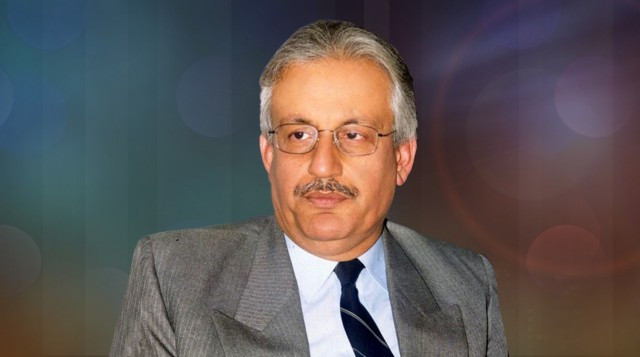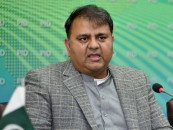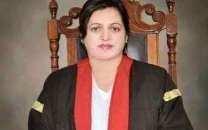Elite hamper broadening of tax net: finance minister
Raza Rabbani calls for a “grand national consensus” to steer the country out of present crisis.

Addressing members of the Senate, the finance minister said that although the economic situation was challenging, it was not as precarious as being portrayed by some segments.
“It would be wrong to say that the government has no money to pay the salaries of government employees beyond the next two months. The government has a mechanism and it has to borrow money,” he said in response to questions raised by senior PPP leader Dr Safdar Abbasi who cited some reports according to which the national economy was passing through the worst phase in the country’s history.
Highlighting measures adopted by the government to deal with the current situation, he claimed that it was trying to rehabilitate flood survivors on a war footing.
Attributing the stress on national economy to expenditure on security in the wake on war on terror and repayment of loans, he said the government had inherited both factors which were inhibiting the government’s ability to respond to the emergency situation.
Accusing the country’s elite of resisting the imposition of flood tax, he said: “We have enforced capital gains tax and now we are going to levy the reformed general sales tax. On the one hand we talk about self-reliance, but on the other people belonging to the elite class resists any move to broaden the tax base.”
Members had more questions, but the Senate chairman asked them to submit a motion in the upper house to hold a detailed discussion on the country’s economic situation.
After the question-hour, the Senate resumed the debate on recent floods.
Raza Rabbani emphasised that politicians would have to rise above party considerations and come up with what he called a “grand national alliance and grand national consensus” to steer the country out of present crisis.
Opposing the idea of a ‘revolution’, he said that a revolution needed an ideology, a certain political order and leadership, all of which were missing in Pakistan’s case. He said in the absence of these basic ingredients, a revolution would plunge the country into anarchy which would ultimately benefit feudal lords and various mafias and destroy the state structure.
He was of the view that under the current circumstances, efforts to impose new taxes will affect the middle class.
Rabbani said that the country was passing through an extraordinary situation after the floods. Citing examples of Haiti, Brazil and Argentina, he said that why “can’t the IMF and World Bank not waive Pakistan’s loans”.
Lawmakers belonging to the Awami National Party staged a token walkout from the upper house to protest the postponement of by-polls in PS-94, Karachi, terming the step discriminatory. They said the decision had been taken on the demand of just one party without taking into account the viewpoint of other stakeholders.
Senators from PML-Q and some from Fata joined the ANP in the protest but they all rejoined the proceedings after registering their protest.
Published in The Express Tribune, September 23rd, 2010.



















COMMENTS
Comments are moderated and generally will be posted if they are on-topic and not abusive.
For more information, please see our Comments FAQ